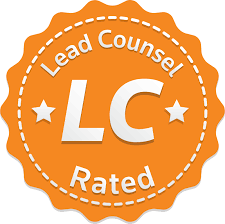Divorce FAQ
- What is bankruptcy?
Bankruptcy is a Federal Court procedure which allows individuals and businesses to eliminate or discharge their debts or repay all or a portion of them over time.
- Who can file bankruptcy?
Any person or business can file for bankruptcy if they owe money to a creditor, with a few exceptions.
- Do I have to file bankruptcy on all the accounts I owe, or can I keep some of my accounts?
You must include all the debts you owe in your bankruptcy petition and schedules. You may opt to keep some debts by “reaffirming” the specific debt.
- I need debt relief. Can a creditor continue to contact me after I’ve filed for bankruptcy?
Upon filing for bankruptcy, a stay order is issued by the court and served on all your creditors. This automatic stay prohibits creditors from contacting the debtor to collect the debt.
- Will I lose my home if I file for bankruptcy?
Filing bankruptcy doesn’t necessarily mean that you will lose your home. The factors that impact your ability to keep your home are:
- The state in which you live and the exemptions allowed
- The status of your loan whether it is in foreclosure or is current
- The type of bankruptcy you’re filing
- If I file bankruptcy, what property can I keep?
After filing for bankruptcy, exemptions allow an individual to keep or “exempt,” certain kinds of property. State laws define which assets are considered “exempt,” in a bankruptcy case but typically include:
- Jewelry up to a certain amount
- Limited amount of cash on hand
- Vehicles up to a certain amount
- Equity in a home up to a certain amount
- “Tools of the trade” or tools and equipment necessary to allow the individual to continue working
- Household furnishings and clothing
- Pension plans including: 401K plans, IRA’s, OPERS
- What is Chapter 7 bankruptcy?
In a Chapter 7 bankruptcy, most debts are discharged. Only those debts which are reaffirmed must be paid, along with student loans and certain tax obligations. Property which is not exempt under Ohio law can be sold by the trustee assigned to your case. Money received from the sale of property is then distributed to your creditors.
- What is a Chapter 13 bankruptcy?
In a Chapter 13 bankruptcy the debtor proposes a plan to pay back all or a portion of their debt to creditors. The debt relief plans last from 3-5 years depending on the circumstances. Filing Chapter 13 bankruptcy can often prevent the repossession of a motor vehicle, or the debtor’s home from being sold at foreclosure.
- Will I have to go to court if I file bankruptcy?
Yes, you will have to attend a bankruptcy hearing called a 341 Meeting of Creditors. This hearing is typically thirty (30) to forty-five (45) days from the date your bankruptcy case is filed. At this hearing, your creditors are allowed to attend or send a representative; however, it is rare that a creditor appears. During the bankruptcy hearing, your case appointed trustee will ask you questions regarding your property, debts, income, and expenses. The United States Trustee’s Office oversees all bankruptcy cases which are filed and may send a representative to the hearing if they have any additional inquiries about your case.
- If I file for bankruptcy, do I have to list all of my debts? Can I keep some of my credit cards?
Any credit card debt or debt that has a balance at the time your case is filed must be listed on your bankruptcy schedules. You may keep any credit cards that have no balance on the account on the day your bankruptcy case is filed. Your ability to use said credit cards, however, is up to the creditor’s discretion and future use can be revoked by the creditor.
- After filing for bankruptcy, will I be able to buy another car?
Yes, but after filing bankruptcy, you can expect to pay higher interest rates since the credit market is constantly changing. Even if you have filed Chapter 13 bankruptcy which can last between three and five years, you are able to purchase a vehicle. You will need to obtain the bankruptcy court’s approval prior to purchasing a vehicle costing more than $1,000.00.
- In a bankruptcy, is my 401(k) account protected?
Yes. In the bankruptcy estate, 401(k) accounts are an entirely exempt asset as provided by federal law.
- If I file bankruptcy, will I be able to keep my home or car?
By entering into a reaffirmation agreement in a Chapter 7 bankruptcy, and if you are current with your home and car payments, you can keep both assets. If your payments are not current on the day your bankruptcy case is filed, you may face future repossession or foreclosure. This also assumes that any equity in your car or home is exempt under state law. If you have filed a Chapter 13 bankruptcy, it may be possible to keep both your home and car if you can afford to do so, even if your payments are not current. Your income must be sufficient to show that you can afford the payments.
- I’ve filed bankruptcy in the past. How long do I have to wait until I file again?
This will depend on the prior bankruptcy chapter filed and current bankruptcy chapter you are seeking to file. You are allowed to file a Chapter 7 bankruptcy eight years after filing a previous Chapter 7 or six years after filing a Chapter 13. A Chapter 13 bankruptcy can be filed four years after filing a Chapter 7 or two years after filing a previous Chapter 13. Please note that your eligibility to file always runs from the date your cases are filed.
- What property can I keep if I file bankruptcy?
In a Chapter 7 bankruptcy, you can keep all property that is exempt from claims of creditors. A bankruptcy lawyer will need to assess the property’s value and the allowable exemption for said property, in order to determine what property can be kept. In order to determine what property can be kept in a Chapter 7, an attorney will need to assess the property’s value and the allowable exemption for said property. Any property that exceeds the allowable exemption can be sold by the Chapter 7 trustee, with the proceeds going to your creditors. In a Chapter 13 bankruptcy, you may be able to keep all property even if you cannot exempt its full value. In order to do so, you will need to pay back best interest, or the minimum amount your creditors would have received had you filed a Chapter 7 bankruptcy.
- In a Chapter 7 bankruptcy, what happens with a debt which I co-signed?
Filing bankruptcy will discharge your liability for the debt but it is important to note that the co-signer will still be responsible for payment.
- Do my spouse and I both have to file bankruptcy because we are married? Most of the debt is in my name.
No. Married couples are not both obligated to file bankruptcy because of marriage. However, if only one of you files and there are joint debts, your spouse will still be liable for those joint debts.
- I am being harassed by creditors. When I file bankruptcy, will that stop harassing phone calls?
Yes. As soon as you file bankruptcy you are protected by an “automatic stay.” This stay prevents creditors from contacting you regarding any debt which was listed on your bankruptcy schedules. Creditors who violate this protection can be punished for continued harassment after receiving notification that your bankruptcy case was filed.








